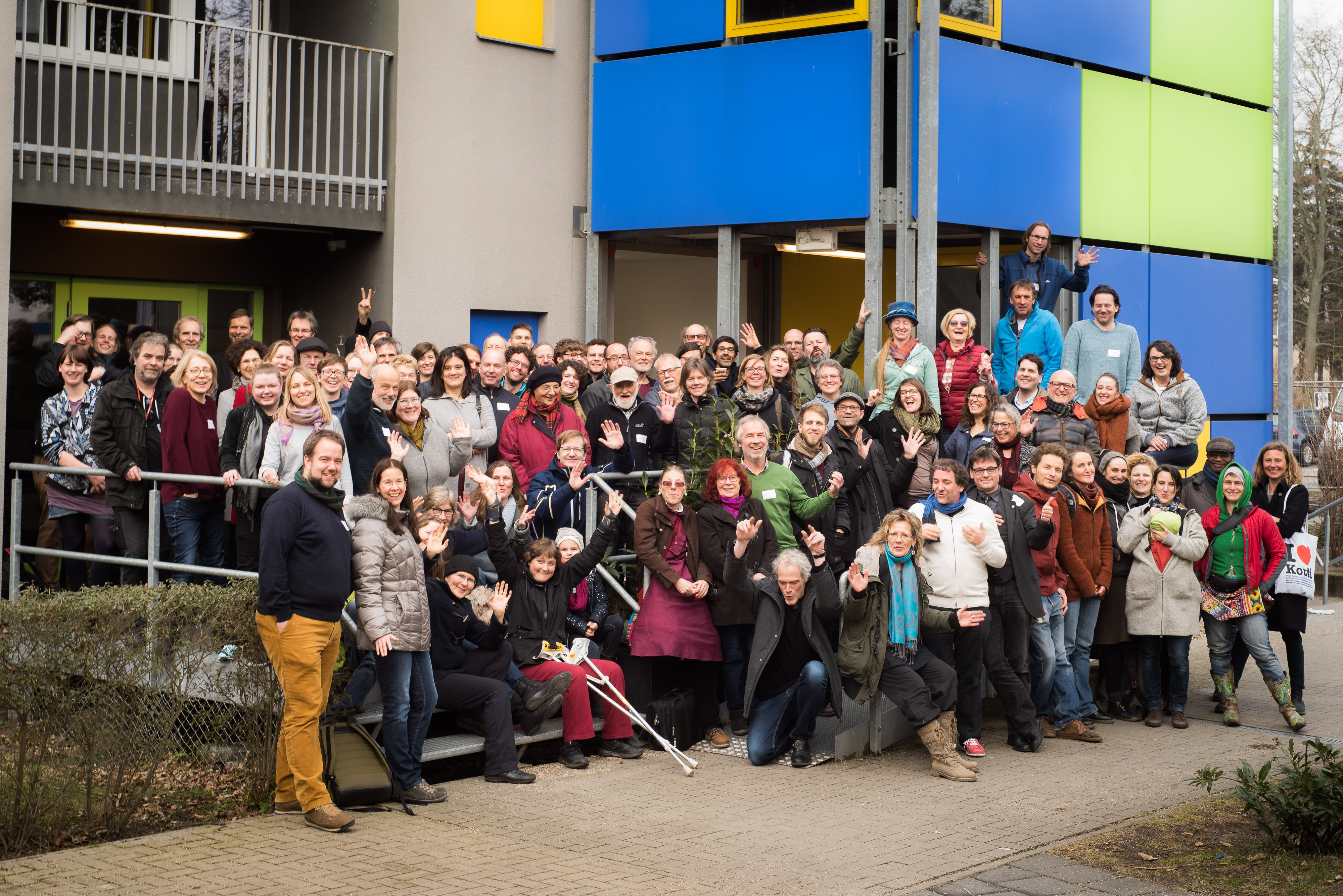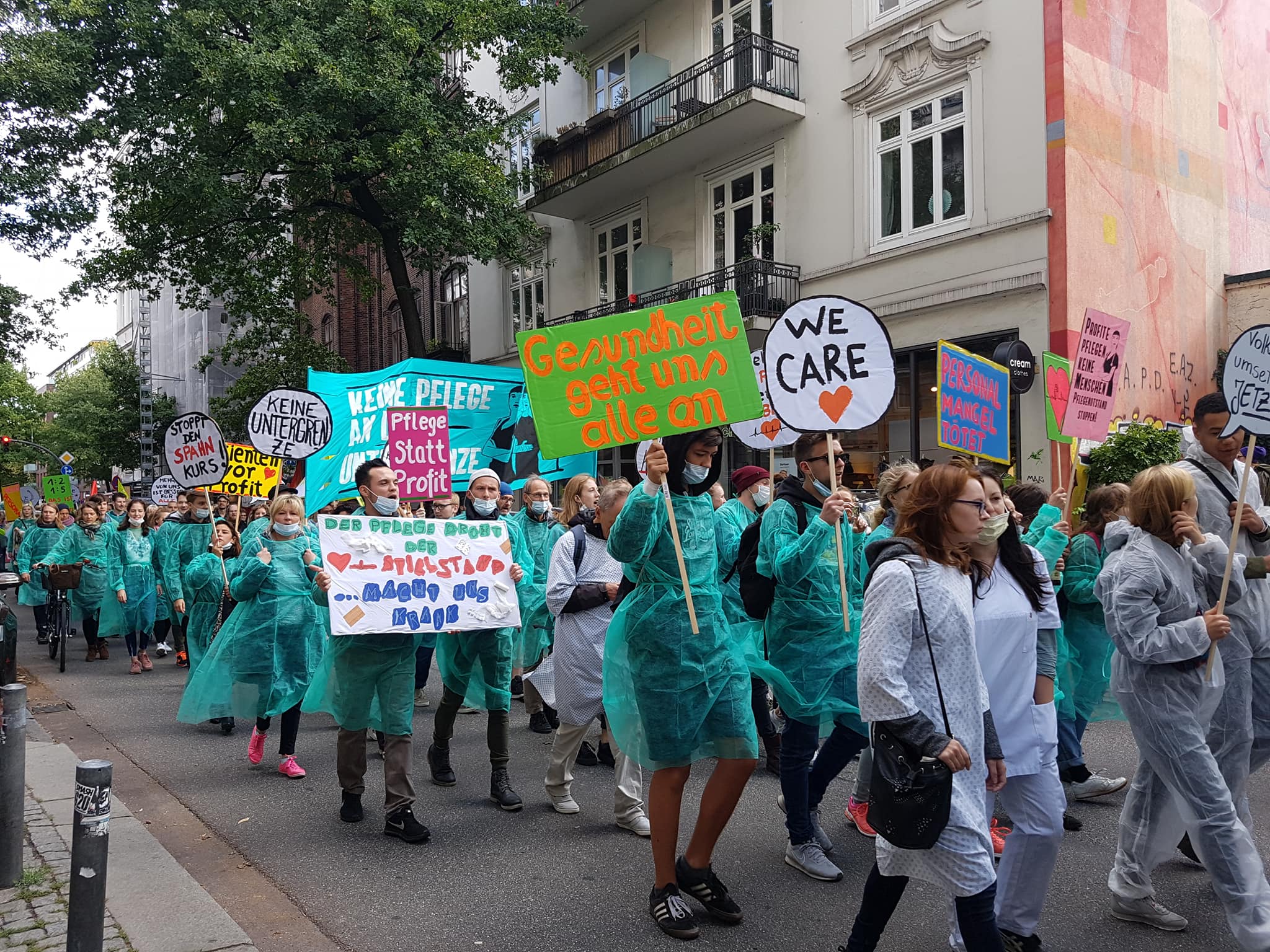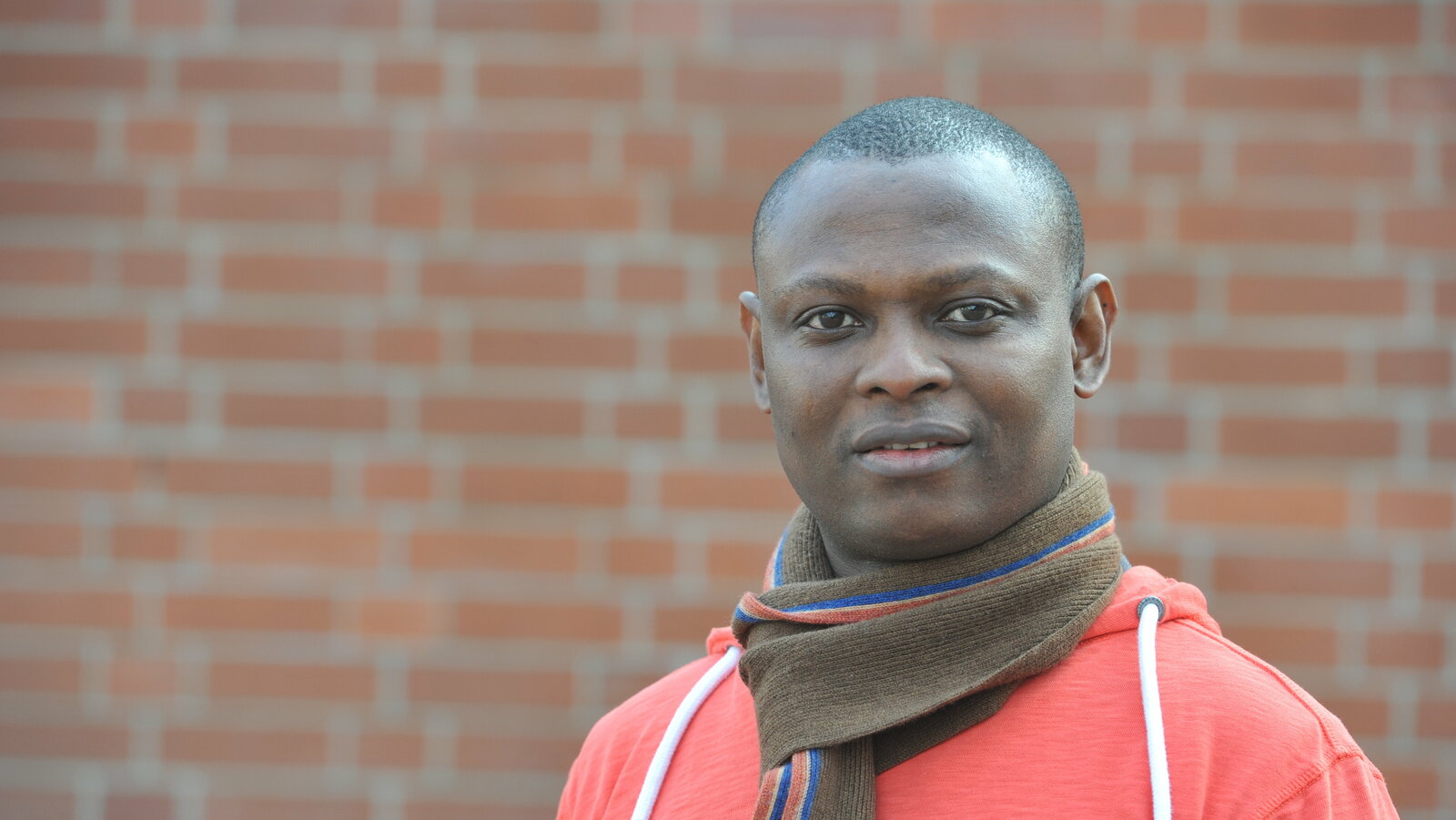No one should have to flee - but everyone should be allowed to migrate. The movement worker Rex Osa (born 1973) therefore wants to fight the causes of flight in the country of origin as well as in Germany and make connections between economic and political processes visible.
Politically persecuted in Nigeria, Rex Osa fled to Germany in 2005 and applied for political asylum here. As an asylum seeker, however, instead of protection, mistrust and rejection awaited him, and he was threatened with deportation. Rex perceived the hearing at the Federal Office for Migration and Refugees as a police interrogation. The officer in charge did not hear him out, but confronted him with accusations. Decisions were unnecessarily delayed, the Regional Council of Tübingen refused to allow his lawyer to see the files, and the Sigmaringen Administrative Court held a two-hour court hearing entirely without a transcript. This had nothing to do with a fair trial. "Asylum seekers are caught up in a machine of control and discrimination," explains Rex Osa.
However, instead of accepting the role assigned to him, he broke his silence and sought political contacts. This is how he got to know the refugee self-organisation "The Voice" in 2007.
![[Translate to English:] Rex Osa bei einer Demo gegen die Abschiebung von Roma-Flüchtlingen 2012 in Stuttgart. Rex hält die Ecke eines Banners und ist umringt von Polizist*innen. Foto: Privat](/fileadmin/_processed_/d/2/csm_1__25__1d93da1930.jpg)
He participated in the investigation of the death of Oury Jalloh, who burned to death in police custody in 2005. From 2008 to 2010, Rex was involved in the campaign for the closure of the asylum seekers' home in Katzhütte, where the hygienic conditions were unbearable. "The exchange with the other activists provided me with a motivational boost," Rex Osa reports in retrospect. "It became clear to me that rights can only be fought for by those affected.
That's why, from 2010 onwards, Rex Osa played a key role in the "Break Isolation" campaign, which he initiated together with "The Voice". The aim was to make the conditions in the refugee hostels accessible to a wider public. Rex sensitised other refugees living in camps to the issue and organised barbecues together with them, for example, to which they invited the neighbours of the respective homes in order to break down the barrier between "those inside" and "those outside". The campaign not only contributed to the empowerment of the refugees, but also made it clear within the refugee community as well as the solidarity groups from the anti-racist movement how important it is for refugees to organise themselves, who can tell their stories and fight for their rights better than a third party can. Also, by breaking down the barriers, friendships have developed between shelter residents and people from the neighbourhood, some of which continue to this day.
Since the beginning of the campaign, Rex has repeatedly drawn attention to the reality of refugees' lives in camps at many discussion events and to the fact that refugee self-organisation must be at the centre of struggles for refugee rights.
Rex was also part of an EU-wide anti-deportation network that publicised the EU's collective deportation practices with Frontex as the lead agency. He still organises anti-deportation workshops to inform refugees on how to resist deportation as individuals but also as a group.
![[Translate to English:] Rex engagiert sich für eine globale Vernetzung der Flüchtlingsbewegung - hier steht er am Rednerpult beim International Migrant Tribunal 2012 in Manila. Foto: Privat](/fileadmin/_processed_/0/4/csm_1__2__46893955bf.jpg)
Among his experiences with deportations in Germany is a practice that Rex Osa has been denouncing particularly vehemently for many years: for example, he defends himself with the campaign "Refugee Country embassy deportation collaboration" against so-called embassy coercion hearings. Refugees who do not present proof of identity are taken by the police to a (black African) embassy without their consent, using coercion, and identified by the staff there on the basis of facial features, skin colour or accent - or not. According to Rex Osa, the Nigerian embassy repeatedly issues Nigerian passports, which are the basis for deportation to Nigeria. The basis is a readmission agreement that Germany has made with Nigeria, as some media have already reported.
Rex Osa now wants to facilitate the exchange with other refugees and refugee activists on an even larger scale. In spring 2014, he therefore flew to West Africa to establish a network with people there who were deported again after fleeing to Europe. The network is intended to connect deported refugees in West Africa and the refugee movement here in Europe. The network should also serve to share concrete deportation experiences: Deported refugees should tell those who are still seeking asylum in Europe about their deportation experiences. Not to scare them off, but so that their expectations are raised to a realistic level and the asylum seekers in Germany and Europe adjust their hopes to the actual circumstances. For another trip this year, Rex is looking for fellow travellers and motivated people who are interested in participating in building the network.
In addition, Rex Osa is planning a campaign on the causes of flight: To this end, he is currently mobilising more refugees for a refugee tour to draw attention to political and economic actors whose actions are ultimately responsible for many people fleeing their homes. The first refugee tour will be organised by Rex Osa to visit arms companies whose arms exports ensure that wars are fought and can continue. Further actions are planned against multinationals like Monsanto, which see agriculture as an industry and thus take away the work and livelihood of small farmers.
Rex Osa has represented the German refugee movement at various international events. In 2012, for example, he was at the International Tribunal in Manila, which denounced human rights violations against migrants by the various UN states and addressed representatives at the parallel UN Committee Global Forum for Migration and development. Rex also participated in the World Social Forum on Migration in Manila in 2012 and the World Social Forum in Tunisia in 2013, and represented refugee rights at the International Assembly of Migrants and Refugees in New York in 2013, at the World Social Forum on Migration in South Africa in 2014, and at many other refugee movement events in Europe and around the world.
Even though he himself is currently no longer threatened with deportation, this does not change his commitment: "The fact that I am still in Germany today and am allowed to stay here was only made possible because I have resisted pseudo-bureaucracy and have been committed against deportations for years. Many refugees don't have the courage to stand up against state repression, but that has to change.
That is why he says today:
"I see it as my duty to help those who cannot defend themselves and to fight against injustice and exclusion." To be sure, Rex knows frustrations and disappointments. But he also sees signs of change, to which he himself has contributed: for example, he organised more and more refugees to bring the issue into the public eye." The credo of his political work is: "We cannot change the world in one day. That's why I value every small step and do my best myself."




